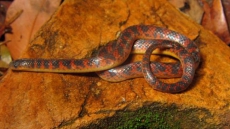Humans have learnt a great deal about complex social behaviour from other species. It's time now for the avians to teach us a few lessons.
A unique study provides intriguing new insights into parrot sociality, revealing a sophisticated social structure with layers of relationships and complex interactions.
In the study, researchers observed both wild monk parakeets in Argentina and captive ones in Florida to test several common but largely untested assumptions about parrot sociality.
Because parrots are often observed flying in pairs in the wild, one assumption is that parrot sociality revolves around the bonding pairs.
But are the parrots flying with a true mate or simply flying with any individual?
Coupling the extensive field study with in-depth analyses revealed that parrots - at least those in captivity - do show a strong preference for associating with a specific individual.
"Understanding the social systems of parrots is critical to understanding social processes such as vocal learning and the spread of behaviours," explained lead author Elizabeth Hobson, a post-doctoral fellow at the National Institute for Mathematical and Biological Synthesis (NIMBioS) in Knoxville, Tennessee.
"In addition, the social network of groups in captive were highly connected with very strong associations with one or two other individuals, multiple moderate associates and only a few weak associates," Hobson noted.
Together, the new research shows that the social lives of monk parakeets are structured by several types of relationships.
"This can also give us greater insight into how social and cognitive complexity evolved in other species," researchers concluded.





